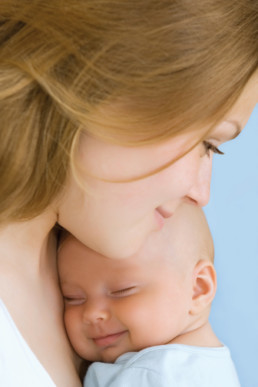


Desire to have children
Your wish – our motivation
You and your partner have been hoping to get pregnant for a long time. We provide individual counselling for couples and offer up-to-date treatment including ivf.
Involuntary childlessness
The causes are varied and affect the man and the woman in roughly equal numbers. Often a cause is found in both partners. In some cases, no cause can be determined; this is then referred to as idiopathic infertility.
We are here for you
For the non-binding initial consultation, we reserve enough time to get to know you and your situation. Ideally, both partners attend. It is important to us that we inform our couples well, so that we can determine the optimal treatment plan together. We integrate the treatment into your everyday life as well as possible.
Clarifications
With the woman:
Before treatment, we check the hormones and perform a vaginal ultrasound to examine the uterus and the ovaries. During cycle monitoring we observe the maturation of the follicles and the development of the uterine mucosa. Often it is also necessary to clarify the patency of the fallopian tubes.
- Hormonal disorders, ovulation disorders (e.g. polycystic ovary syndrome, thyroid dysfunction).
- Tubal non-patency
- Advanced age with reduced egg quality
- Impairment of implantation due to changes in the uterus (fibroids, damaged mucous membrane)
- Immunological causes
- Endometriosis ( In endometriosis, the lining of the uterus also grows in other parts of the body, outside the uterine cavity. This often leads to severe menstrual cramps and sometimes also to severe adhesions in the abdomen. A pronounced endometriosis can reduce the chance of becoming pregnant).
- Repeated miscarriages
Male factors:
For the preparation of a spermiogram, the ejaculate is collected after 2-5 days of sexual abstinence. The volume of the ejaculate, the smell, the colour and the pH value are assessed. During the microscopic examination, we determine the concentration, motility and appearance of the sperm (morphology). We also examine the ejaculate for bacteria, white blood cells and fructose. For a good result, 2 spermiograms should be carried out at least 4 weeks apart. If the spermiogram is poor, urological clarification is advisable. In rare cases, we recommend genetic testing.
- Impaired sperm quality due to impaired sperm maturation or impaired sperm transport (e.g. stuck epididymal ducts after infections).
- Genetic causes
We offer the following treatments:

What you can do for the desire to have children
To increase the chances of pregnancy, a healthy lifestyle is important. Refrain from smoking, do not drink alcohol excessively and eat a balanced diet rich in vitamins. Adequate calcium, iron and folic acid intake is important. Both being overweight and underweight reduces the likelihood of getting pregnant. Regular physical exercise is good, but excessive sport (especially endurance sport) can have a negative effect.
Support and care
Many couples find fertility treatment very stressful. Especially couples who have wanted children for many years suffer considerably. We try to reduce the stress associated with the treatment. Sometimes learning relaxation techniques such as autogenic training or yoga helps. Some couples are helped by traditional Chinese medicine (TCM) or homeopathy. Good communication in the partnership, with friends and family is important. Nevertheless, it can happen that the desire to have children becomes the dominant theme and life no longer seems attractive. Then it makes sense to seek professional psychotherapeutic counselling. It is important that you let us know if you are not feeling well and you would like professional support. We work with competent psychotherapists who can accompany and support you during treatment.